Now in its ninth year, the Rural Summer Science Camp brings teachers and high school students from rural Wisconsin communities to Madison to learn about advances in stem cell science and careers in research. A large emphasis is placed on hands-on, experiential learning. Campers aren’t just hearing about science– they’re doing science.
“They get to wear white coats with the people they think should be wearing white coats,” says Dan Murphy, outreach coordinator at the Morgridge Institute and one of the camp organizers. “We want them to come here and have this blockbuster experience about the real deal and then also take home the enthusiasm of that exposure of what it is to be a scientist.”
This year’s camp included more activities led by undergraduate and graduate student groups, highlighting scientists at different stages of their career and exposing the high school students to possibilities for their own futures.
Beyond learning some of the ‘how’ of stem cell science, campers discover what still needs to be asked and answered in the field, navigate the ethical questions with bioethicist Pilar Ossorio, and learn the multitude of disciplines, like biomedical engineering, that must be incorporated into the work to progress forward.
A total of 37 high school students and nine teachers will have participated in this summer’s camps, split between a June and a July session. Participating schools include: Benton Community Schools, Mellen School District, Necedah Area School District, Solon Springs, Three Lakes High School, North Crawford, Prentice High School, Tomah High School, and Winter High School.
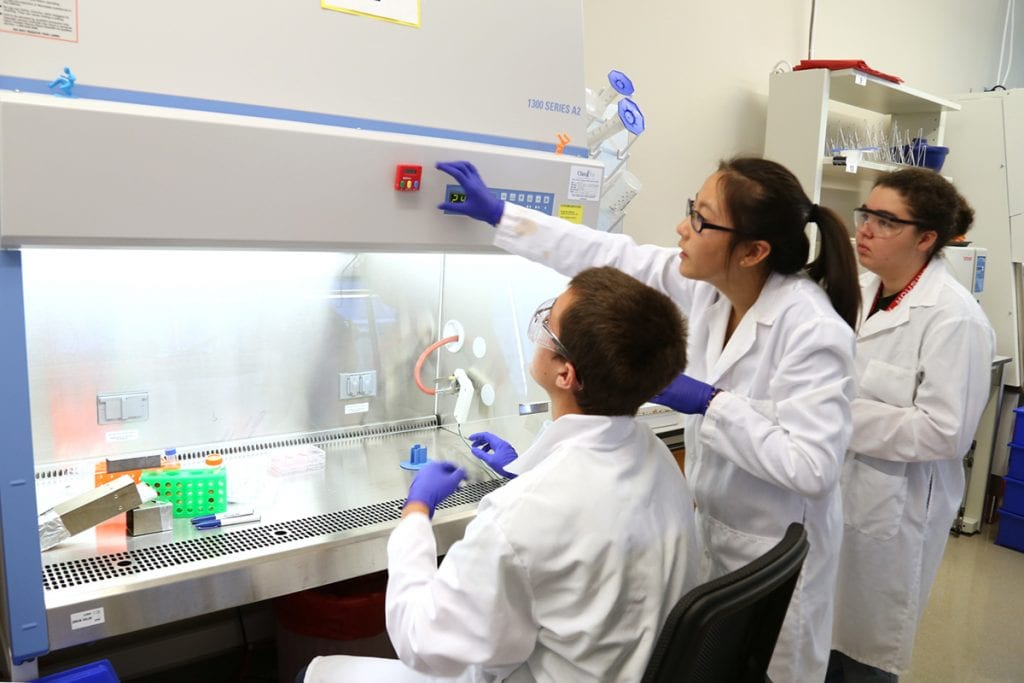 Dane Tiedman (left) is a junior at Benton High School who especially liked the lab activities. “The stem cell passaging was my favorite part,” Tiedman says. “If I could come back again, I would—it was awesome.”
Dane Tiedman (left) is a junior at Benton High School who especially liked the lab activities. “The stem cell passaging was my favorite part,” Tiedman says. “If I could come back again, I would—it was awesome.” 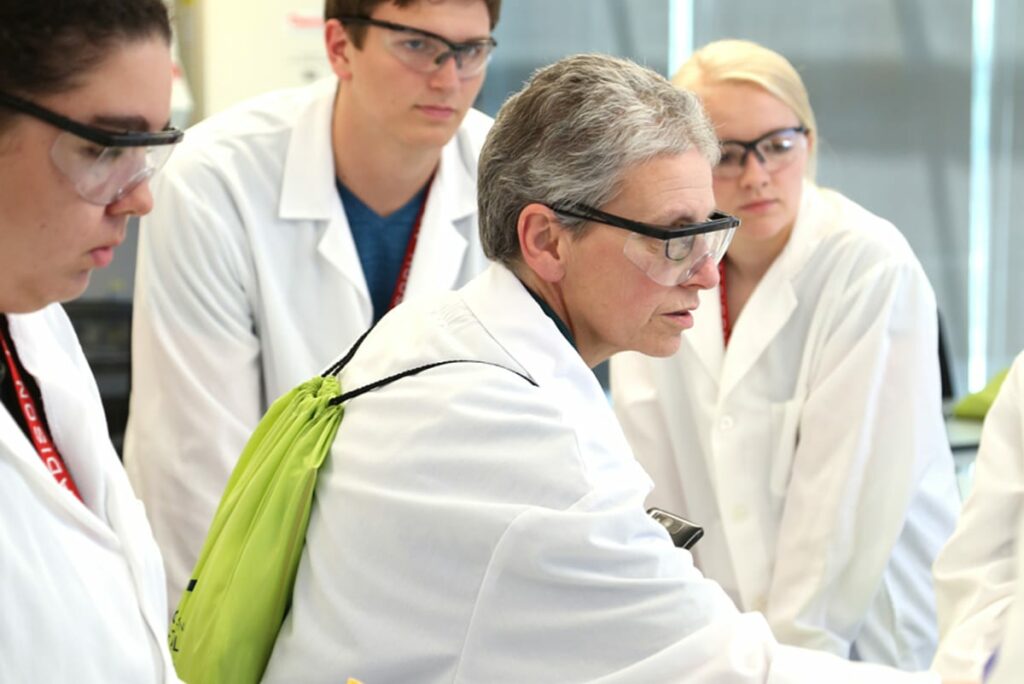 Laure McCloskey is a teacher in the Mellen School District and it was her first year at the camp. “What was most valuable to me was to see the new technologies—this was a great professional development week for me,” McCloskey says. “And it was a chance to collaborate with my cohorts, my peers and with the academics.”
Laure McCloskey is a teacher in the Mellen School District and it was her first year at the camp. “What was most valuable to me was to see the new technologies—this was a great professional development week for me,” McCloskey says. “And it was a chance to collaborate with my cohorts, my peers and with the academics.” 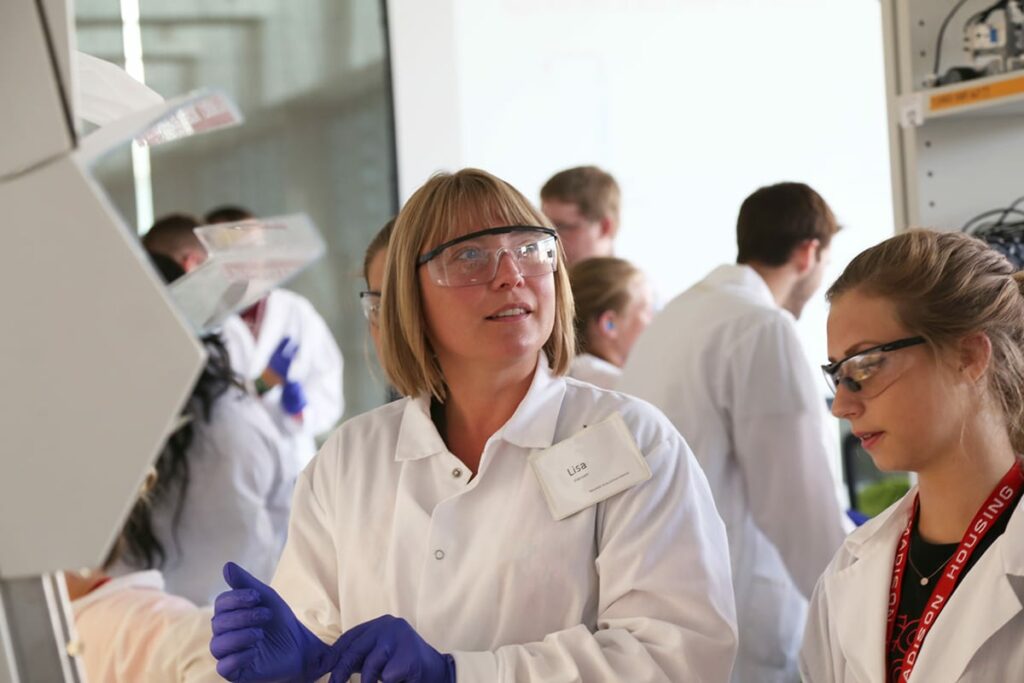 While the camp helps expose high school students to the potential of research careers, it also acts as a professional development opportunity for teachers. They learn about innovative work and how to adapt the activities and talks for their classrooms.
While the camp helps expose high school students to the potential of research careers, it also acts as a professional development opportunity for teachers. They learn about innovative work and how to adapt the activities and talks for their classrooms. 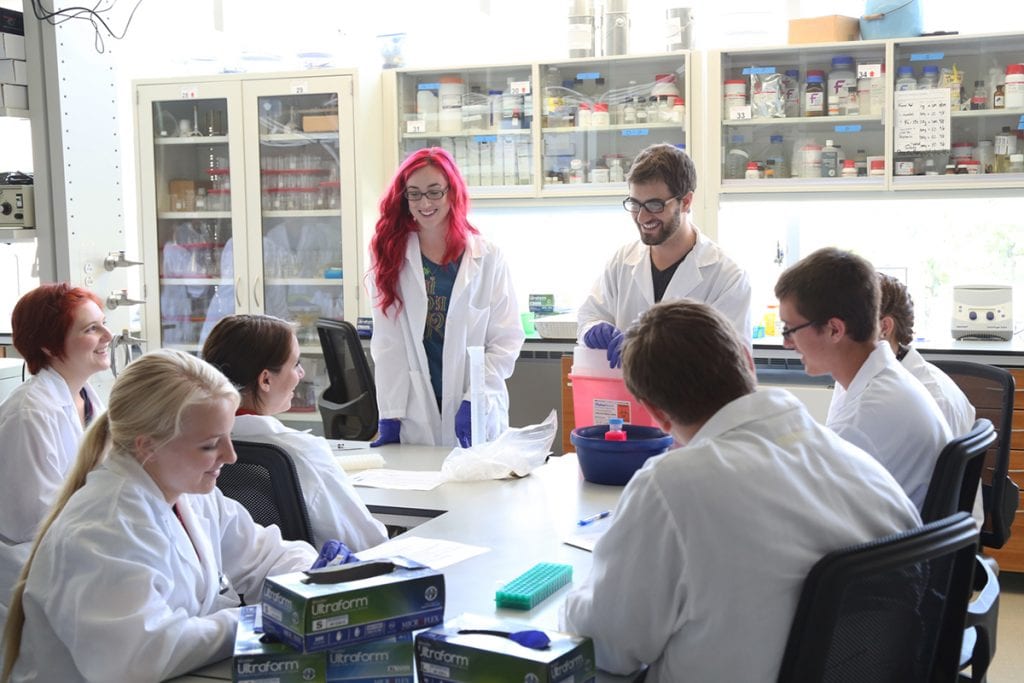 About 30 Madison undergraduates, graduate students and faculty presented research and activities to the high school students. “I let the researchers drive their activities,” Murphy says. “I just facilitate them, give them the freedom and time to do it.”
About 30 Madison undergraduates, graduate students and faculty presented research and activities to the high school students. “I let the researchers drive their activities,” Murphy says. “I just facilitate them, give them the freedom and time to do it.” 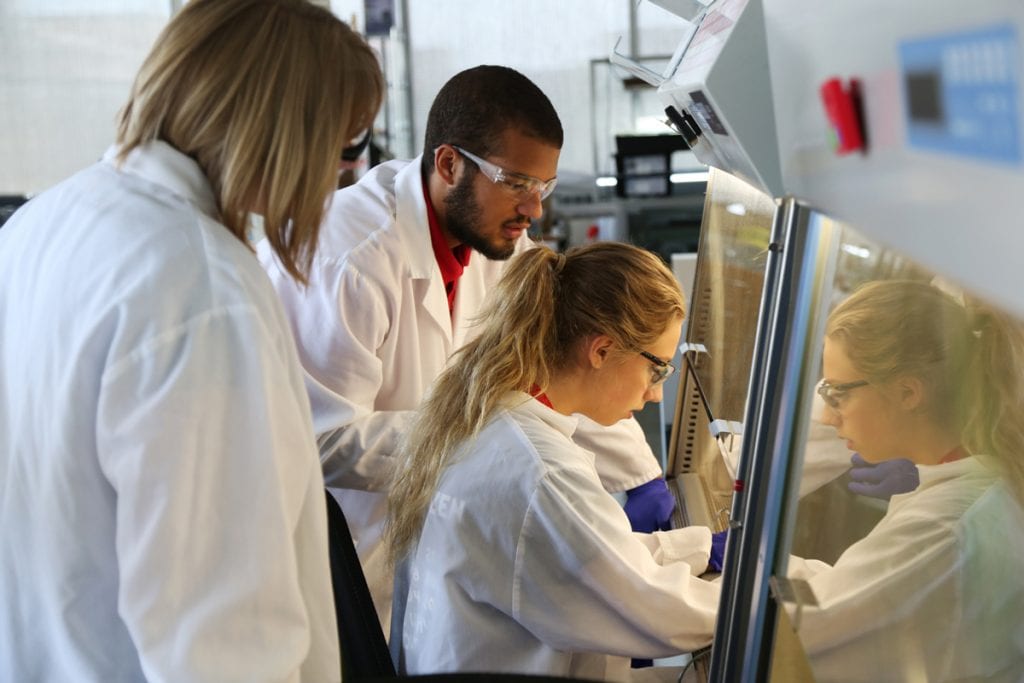 Stephanie Rattunde is a senior at Necedah Area School District who is interested in a career as a physician assistant. Campers have the chance to visit UW-Hospitals while in Madison. “This camp gives you an outlook on different career options, and if you’re thinking of going into the medical field you should definitely do it,” she says.
Stephanie Rattunde is a senior at Necedah Area School District who is interested in a career as a physician assistant. Campers have the chance to visit UW-Hospitals while in Madison. “This camp gives you an outlook on different career options, and if you’re thinking of going into the medical field you should definitely do it,” she says. 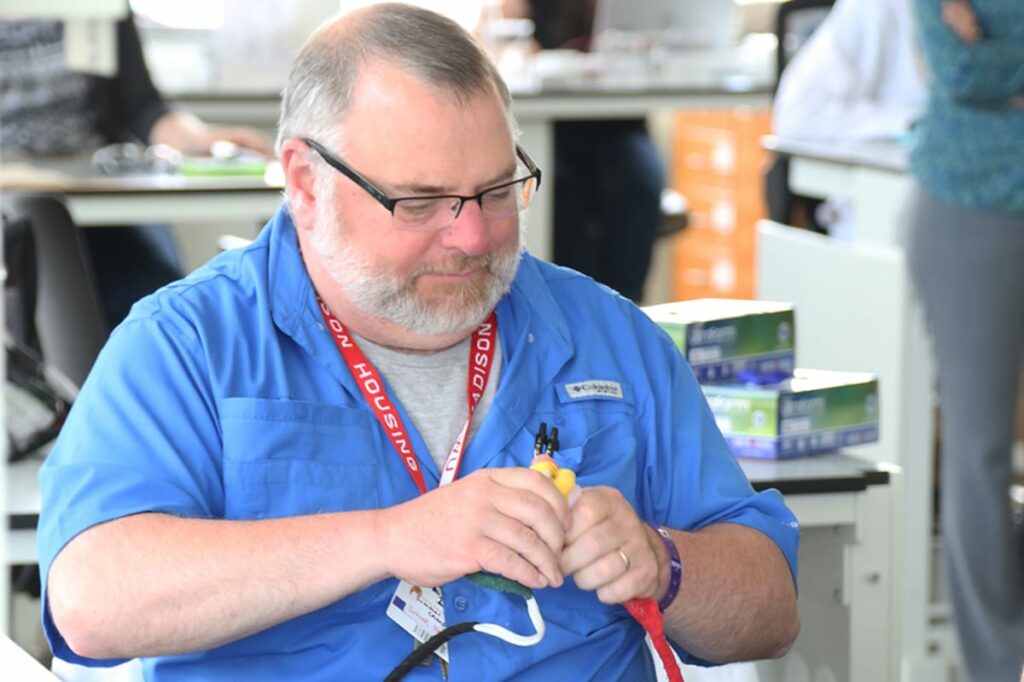 Peter Schoff is a teacher at Three Lakes High School and enjoyed his first experience at the camp. “It gives the kids an idea of what UW–Madison has to offer,” Schoff says. “I think it was a great experience and would highly recommend it.”
Peter Schoff is a teacher at Three Lakes High School and enjoyed his first experience at the camp. “It gives the kids an idea of what UW–Madison has to offer,” Schoff says. “I think it was a great experience and would highly recommend it.” 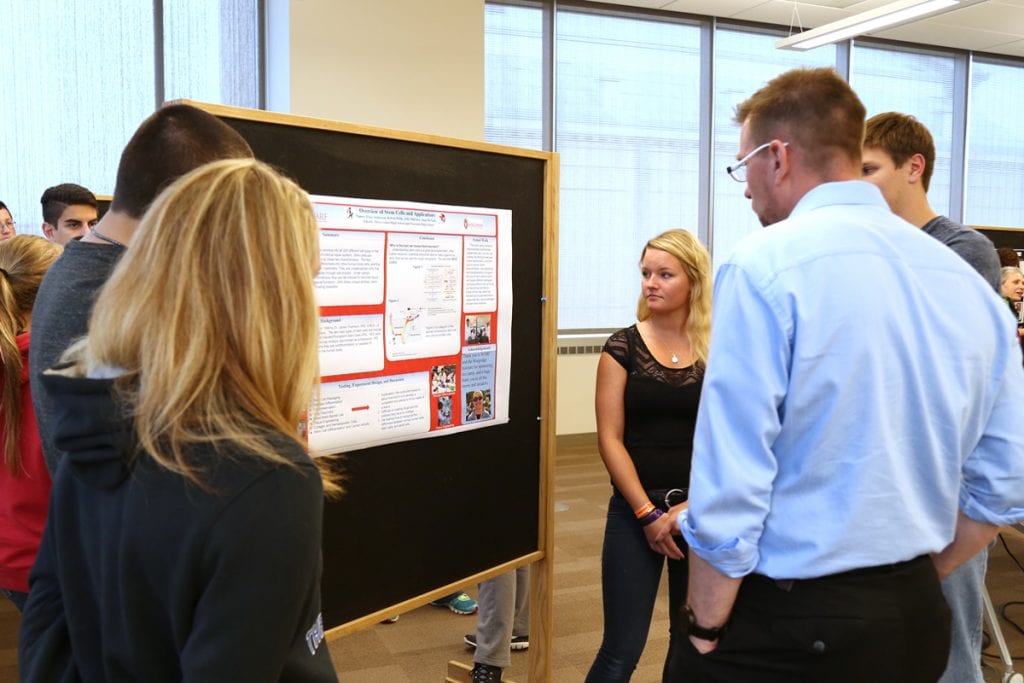 The four-day camp ends with a poster session presented by the students. They create the posters based on research and activities they learned about during the camp.
The four-day camp ends with a poster session presented by the students. They create the posters based on research and activities they learned about during the camp. 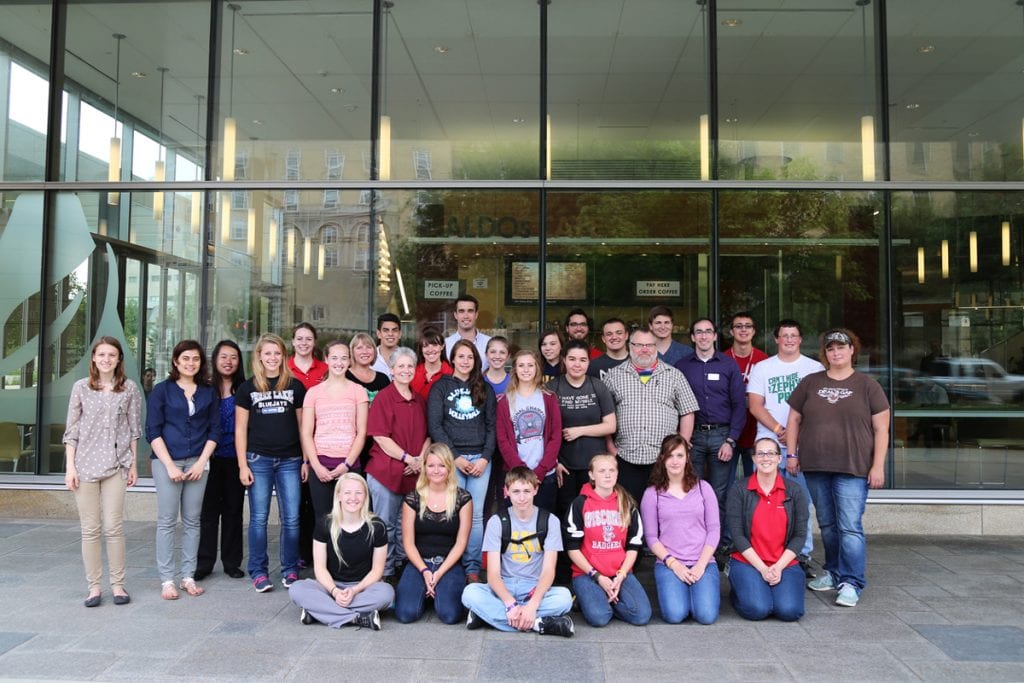 The June 2015 camp session included 20 students and five teachers from Benton Community Schools, Mellen School District, Necedah Area School District, Solon Springs, and Three Lakes High School.
The June 2015 camp session included 20 students and five teachers from Benton Community Schools, Mellen School District, Necedah Area School District, Solon Springs, and Three Lakes High School. 